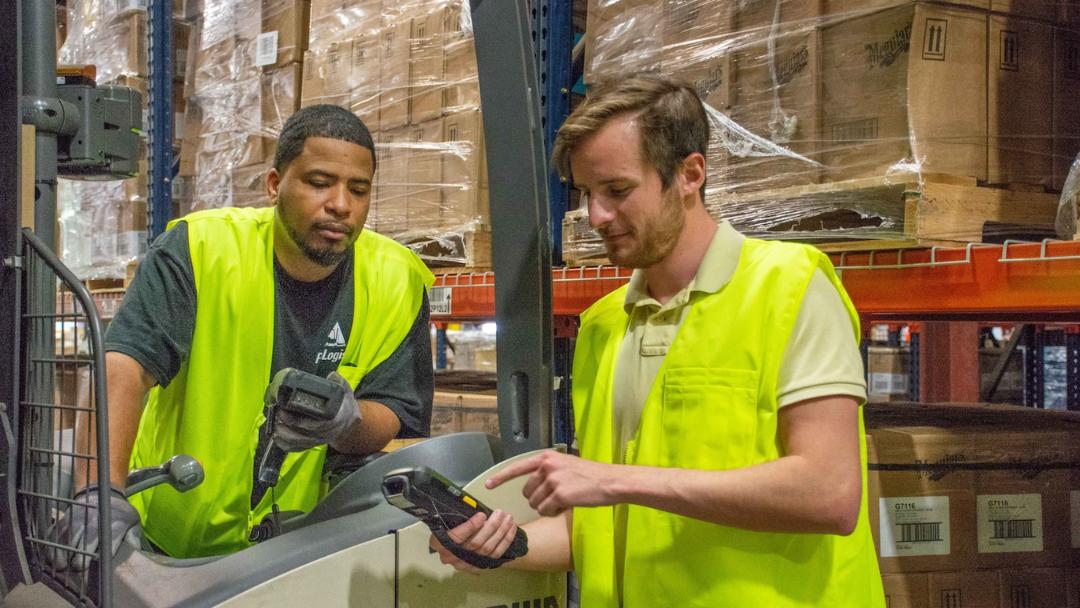Discover the value of phone interviews in modern recruitment and the strategies hiring teams use to conduct effective calls with qualified candidates.
Amid continued talent shortages, attracting and retaining top talent is critical, and phone interviews have become an indispensable tool for teams looking to streamline their hiring process. Read on for a closer look at the value of phone interviews and the best practices for conducting successful conversations with qualified talent.
Best practices for conducting phone interviews
Why choose phone interviews in recruitment?
As businesses increasingly adopt hybrid or remote working arrangements to attract top talent, traditional in-person interviews have become less frequent.
While face-to-face interviews are still a valuable way to engage with candidates, there are several compelling reasons to conduct interviews over the phone, including:
- Accessibility: Connect with candidates from diverse geographical locations without the constraints of travel.
- Reduced costs: Eliminate any potential travel expenses, such as airfare or accommodations. These savings are amplified if you plan to interview multiple applicants.
- Time savings: Phone interviews are a time-efficient method for preliminary screening because they can be scheduled and executed quickly.
- Wider talent pool: By opting for a phone interview, your HR team can widen its net to capture a broader talent pool, including potential passive candidates who are not actively seeking a new position.
Essential preparation for a successful phone interview
There’s a common misconception that phone interviews are less formal than in-person meetings, but they’re equally as critical and require the same amount of preparation. Doing the groundwork for a successful phone interview is key to identifying the best-fit candidates as soon as possible in your organization’s recruitment process.
When preparing, be sure to:
- Thoroughly review applicants: Indeed reports that an estimated 40% of people lie on their resumes, making it important to carefully examine an applicant’s resume, application, and associated links or profiles. This will reveal any discrepancies or career highlights you’d like to discuss.
- Craft thoughtful questions: Create a standardized set of questions that assess a candidate’s qualifications for the role and their interest in the organization.
- Allocate time and space for the interview: Approach a phone interview with the same level of intention and focus that a job seeker is likely to bring. Block out dedicated time in your schedule and find a quiet location for the call to demonstrate your attention to the conversation.
Tips for conducting effective phone interviews
According to research from Josh Bersin, 75% of companies are struggling to recruit effectively. This underscores the importance of stepping up your hiring efforts to reach qualified talent.
Consider the following strategies to conduct more effective phone interviews in 2023 and beyond:
1. Remember: an interview is a conversation
Approach the interview as a two-way exchange. To build rapport with applicants before asking more technical questions about their experience, inquire about their life, background, or aspirations. Engaging in active listening not only establishes a more comfortable environment for the interviewee but also ensures you’re adequately assessing a candidate’s qualifications.
2. Avoid distractions
For the best applicant evaluation, host the interview in a quiet, distraction-free environment. That includes avoiding the urge to multi-task, turning off notifications on your devices, and eliminating other potential interruptions to demonstrate your commitment to the conversation.
3. Create a structured interview plan
Develop a structured approach for your organization’s recruitment process and phone interviews by establishing a well-defined introduction, a sequence of pre-determined questions, and leaving space for candidates to ask questions. This also supports interview consistency.
4. Leverage in-person interview strategies
Many of the strategies used in face-to-face interviews are applicable and valuable to phone interviews. For instance, when asking behavioral or situational questions to gauge a job seeker’s suitability, leverage strategic pauses to encourage honest responses. It’s also possible to evaluate body language over the phone: When a candidate is excited and confident, it will likely come across in their voice.
5. Take notes
Keep a notepad and pen, or your laptop, ready to jot down key points during your conversation — especially when conducting multiple calls. This is a beneficial strategy for remembering important details for comparison and evaluation later in the hiring process.
6. Establish next steps and follow up
At the end of the interview, clearly communicate what the applicant can expect in terms of follow-up steps. Whether that involves another phone interview, an invitation for an in-person meeting, or an email with more information, timely and transparent communication is vital to create a positive candidate experience.
Empowering your hiring process with workforce-as-a-service
As the era of talent shortages continues, finding qualified candidates is vital, and solutions from Employbridge are designed to support teams along the way
.
Employbridge’s workforce-as-a-service solution, powered by Bluecrew, combines the expertise of a national staffing leader with cutting-edge technology to boost recruitment agility and success. Our solutions empower organizations toward better matches, quicker placements, and more adaptable workforces.



